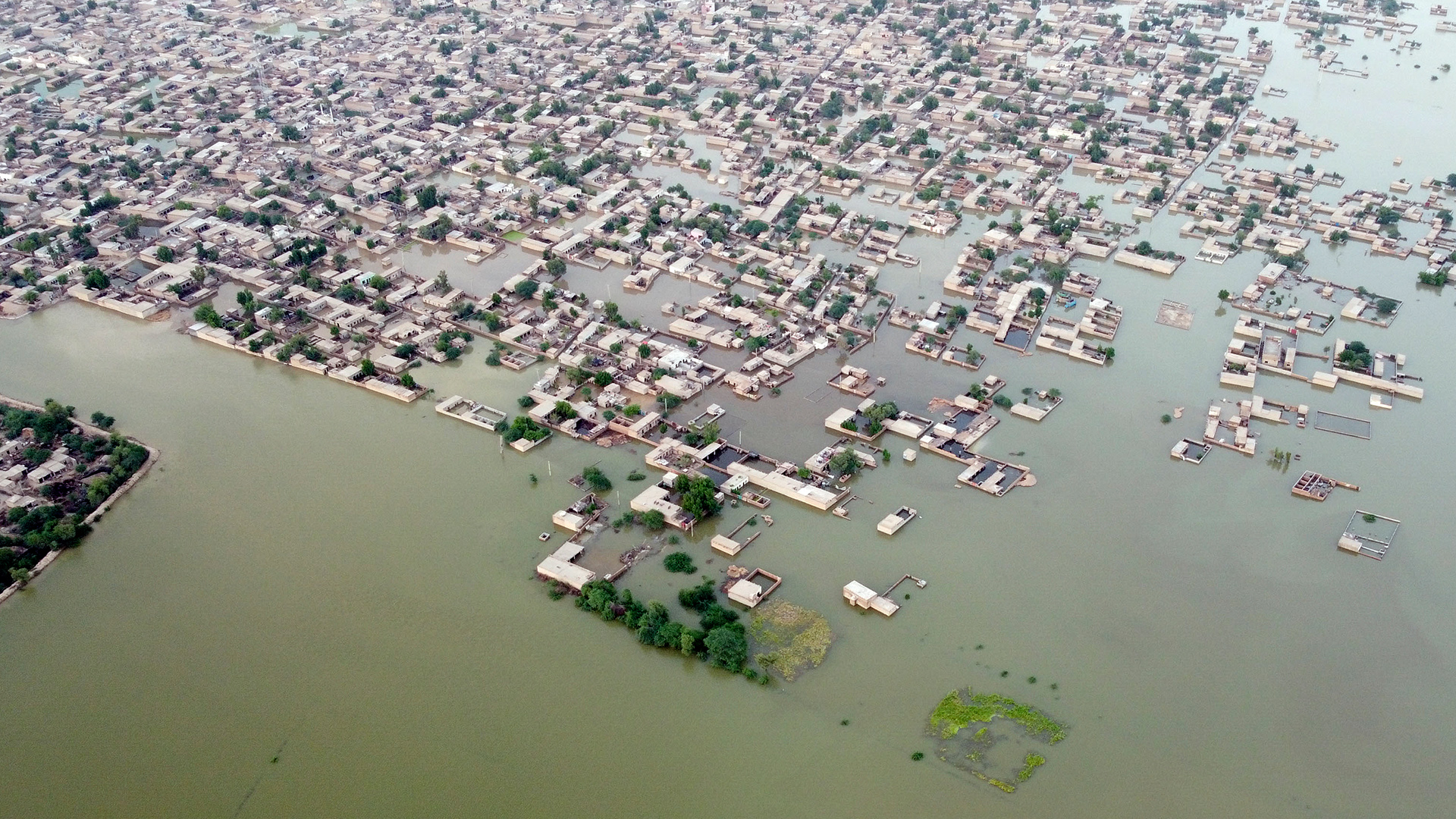Status: 01/09/2023 2:34 PM
A third of the country drowned, 1,700 dead: The UN sees climate change as the cause of the flood disaster in Pakistan and is raising money for reconstruction and adaptation to climate change. Germany is also helping.
Today’s donor conference in Geneva was being sewn with a hot needle. The United Nations and Pakistan have invited governments, companies and banks to Geneva on relatively short notice – insiders say getting organized during the holidays is a challenge.
Reason for the rush: Pakistan clearly cannot handle the reconstruction after last summer’s devastating floods on its own. Nor should. Because, according to UN Secretary-General António Guterres, Pakistan can bear the consequences of climate change without causing it massively.
There are victims. There is damage. The devastation caused by climate change is real. From floods and droughts to hurricanes and torrents. And, as always, the least responsible countries are the first to suffer.
Guterres said in Geneva that Pakistan is responsible for less than one percent of global emissions and did not cause the climate crisis – but it has to live with its worst effects.
UN Secretary-General Guterres said that Pakistan contributes minimally to global warming, but is feeling the effects of climate change more clearly.
Photo: AFP
The goal: to combat the effects of climate change
Pakistani Prime Minister Shabazz Sharif will present the reconstruction plans at the Geneva conference. The goal is to make the country resilient to climate change. This means rebuilding it in such a way that future floods cause less damage, for example by not building houses or railway lines directly next to rivers. An early warning system is also planned.
The country will need the equivalent of 15 billion euros for reconstruction in the coming years. Half of this will be gathered at the Geneva conference. Pakistan also wants to find long-term trading partners.
Shabazz Sharaf says, “I know many countries are going through economic hardship and under extreme stress, but Pakistan needs a new coalition of will. An alliance that can save lives.”
Germany is also participating
French President Emmanuel Macron could also be linked to the conference. He says that his country supports Pakistan in reconstruction with 360 million euros, Germany announced additional aid worth 84 million euros, and the European Union provides 500 million for emergency aid and reconstruction. Organizers hope to get about 7.5 billion pledges during the day.
Money should go where it is needed
The United Nations wants to make sure that money goes where it is supposed to go. Shortly before the floods, a coalition of politicians who had been repeatedly accused of corruption in the past came to power in Pakistan.
The head of the United Nations Development Programme, Achim Steiner, says the risks of misappropriation of funds are particularly great in times of crisis. However, the people of Pakistan should not be left alone.
We have agreed with the government in Pakistan to use a very transparent system. The government itself is very committed to creating a system of transparency for all the funds that have now been pledged here in Geneva. We, as the United Nations Development Program, are also working on good governance.
In addition, they are working on digital technologies, so that in the future there will be much less money transfer opportunities.
Helping Pakistan now, says Achim Steiner, is not just a matter of humanity and solidarity. If the situation in the country does not improve, more people will flee from there. On the other hand, there is a danger that some of the population in the neighboring country of Afghanistan will become politically radicalized.

“Total coffee aficionado. Travel buff. Music ninja. Bacon nerd. Beeraholic.”







More Stories
Researchers detect extremely high-energy gamma rays
Anxiety disorders in old age increase the risk of dementia
Researchers are particularly fascinated by these exoplanets.